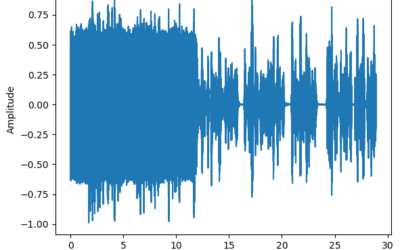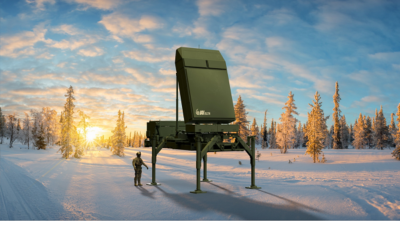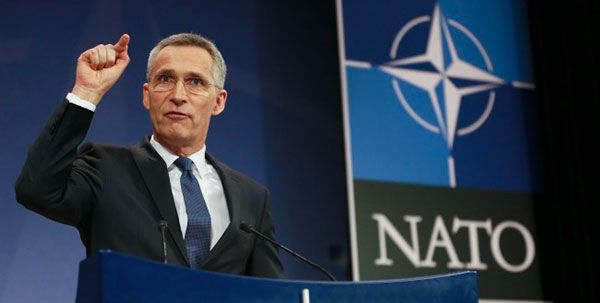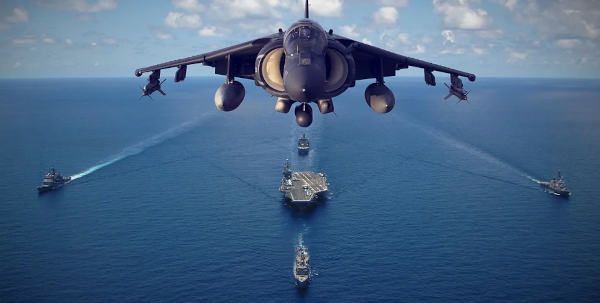Military relations between China and Russia are warming up, including in the Arctic
Russia’s launching of Vastok 2018 today does not only mark the beginning of its largest military exercise since the Cold War, reportedly involving approximately 300,000 service personnel; it also marks the first time in the history of the exercise that Russia invites China to participate. As China prepares to send 3,200 troops in Eastern Siberia, the international community looks upon this development with a certain level of apprehension.
Indeed, while relationships between the two countries may at times have been quite tense – for instance Russia has repeatedly accused China of reverse engineering some of its military platforms and systems – in the past few years those who have kept a close eye on China have seen an easing of these tensions coupled with a move to develop closer military ties. At the international conference on Maritime Security and Defence (MS&D) held during the SMM 2018 show last week in Hamburg, Dr Sarah Kirchberger, Researcher at the Centre for Asia-Pacific Strategy and Security of the ISPK, gave a sobering account of the evolution of these ties.
In her view, while a number of people may be dismissing the possibility that the two countries are working on a new military alliance, there are a number of factors that indicate this could well be happening. Not least of all is the geopolitical lens through which both countries view international relations. “Both powers feel that they are being denied their rightful place in the world order and that they are encircled by NATO and other US allies,” Dr Kirchberger noted. “Both leaders share a wish for what they call a ‘democratisation of international relations’, that is, a multipolar world with no single hegemonic superpower able to call the shots.” In this context, it might therefore be unsurprising that Russia is not only inviting China to participate in one of its most significant shows of force, but it is also no longer accusing China to illegally copy its technology; instead, Russia has agreed to export some of its most modern equipment to China, including its SU35 fighter jets and its S400 air-defence system.
If increasing military cooperation between the two countries was not sufficient to raise NATO concerns, it might be worth turning to China’s growing interest for the Arctic, a region generally kept off the NATO map for a variety of political reasons, to understand the possible extent of this new partnership. “Russia has become the largest supplier of crude oil to China before any other supplier in the Middle East,” Dr Kirchberger told the audience at MS&D; as if that were not enough, China’s new (and first) Arctic strategy paper released earlier this year has officially included the Northern Sea Route into its Maritime Silk Road framework, for which it needs, in part, Russian approval. As Dr Kirchberger put to the audience, “one might wonder if it is really only about containership traffic and raw materials imports from the Russian Arctic or whether there is something more that could be going on.” Indeed, in 2016 China set up its first polar satellite tracking station in Kiruna, Northern Sweden, arguing that it was for a civilian research project; however, Chinese language news articles describing the opening event are very clear that it is actually meant to have heavy military implications. Similarly, China is working on getting its global navigation system (BeiDou) running by 2020, and is reportedly in talks with Russia to perhaps begin a technical cooperation between the BeiDou system and the Russia System (GLONASS). All these developments are clearly pointing to a Chinese government intent on gathering as much data as possible to increase its international maritime awareness and presence. And Russia is helping.
The Arctic has long remained off the NATO map because four of the five Arctic states – Canada, Denmark, Russia and US – have sought to avoid outside interference in the region; only Norway, due to its proximity with Russia, has been vocal about its desire to change the status quo. However, Russia’s increasing military build-up in the region, China’s growing interest in its trade routes, and the development of military ties and cooperation between the two should start ringing some alarm bells. Most experts on the Arctic are doubtful that any conflict could ensue due to issues strictly pertaining to the region – such as resources becoming available with melting sea ice; however, a number of these experts strongly believe that the Arctic could become embroiled in a proxy war (see Naval Forces III and IV 2018 for more details). If this were to happen, exercises such as Vostok, which takes place partly in the Arctic circle by way of the Bering Sea, certainly demonstrate that Russia and China are getting ready for it; the question is whether they will be on the same or opposing sides.
Dr. Alix Valenti
























